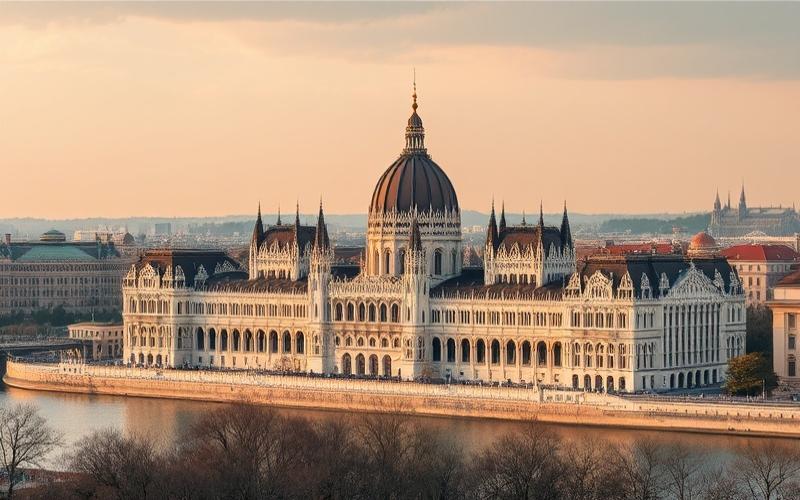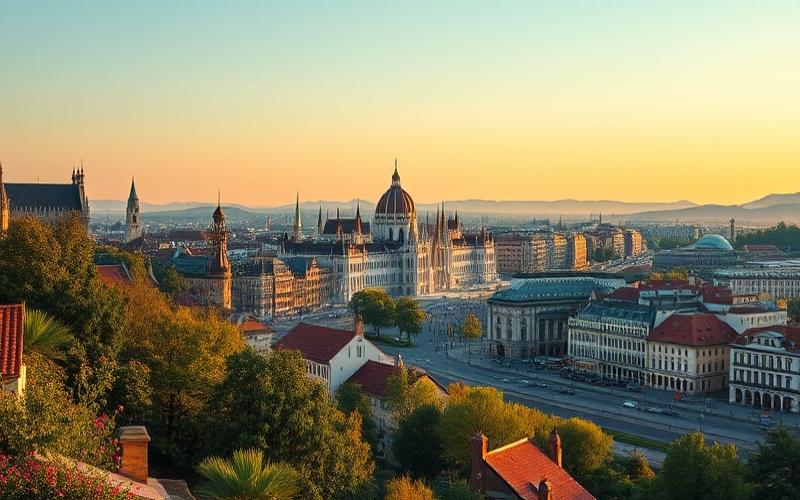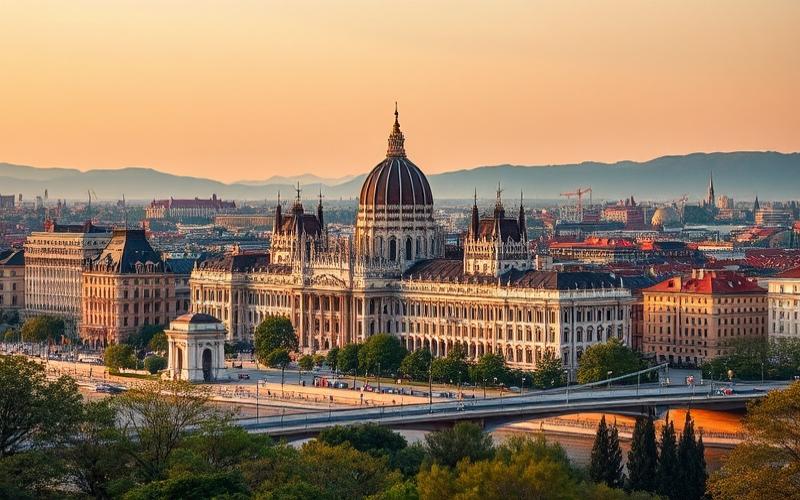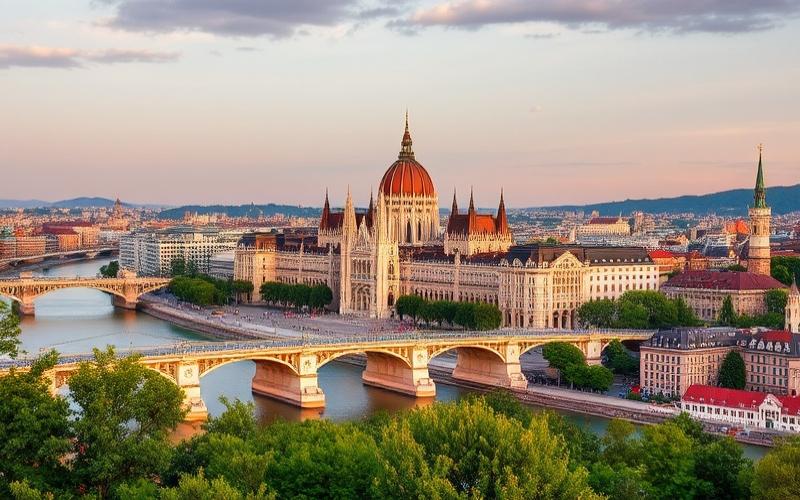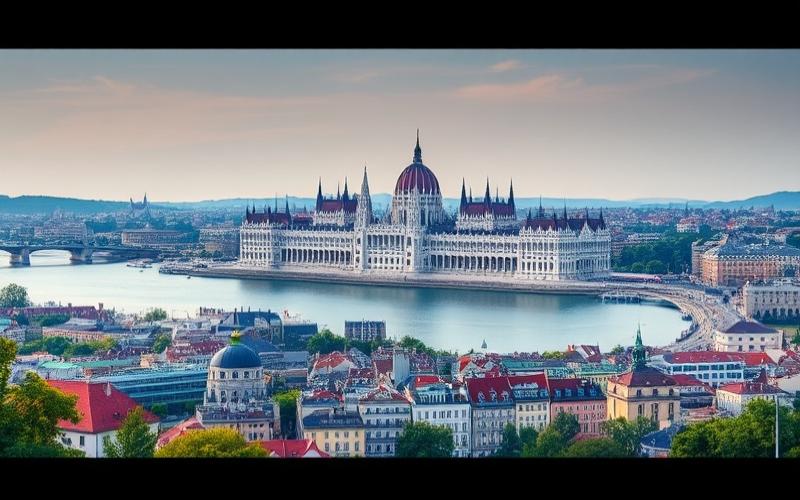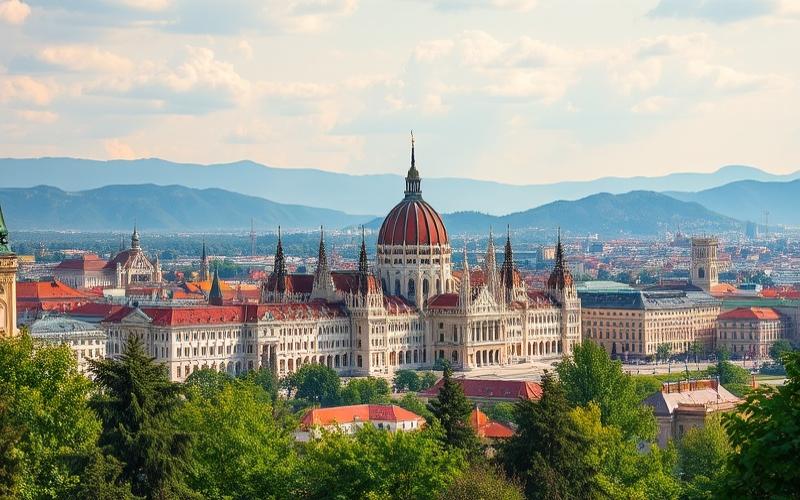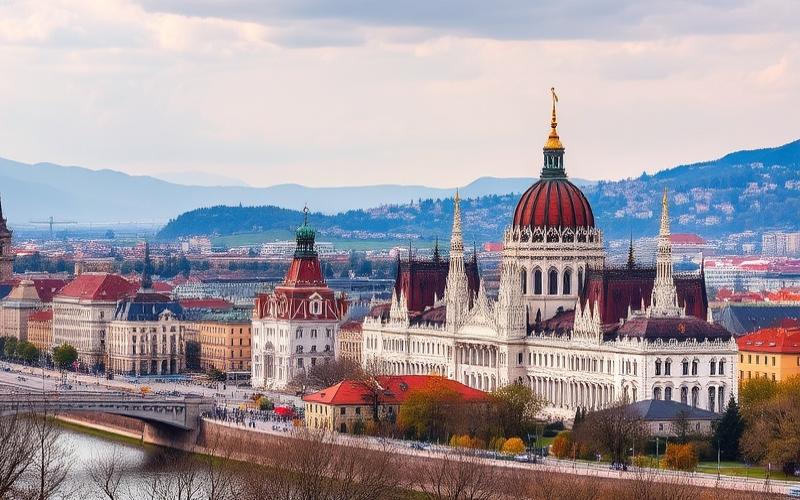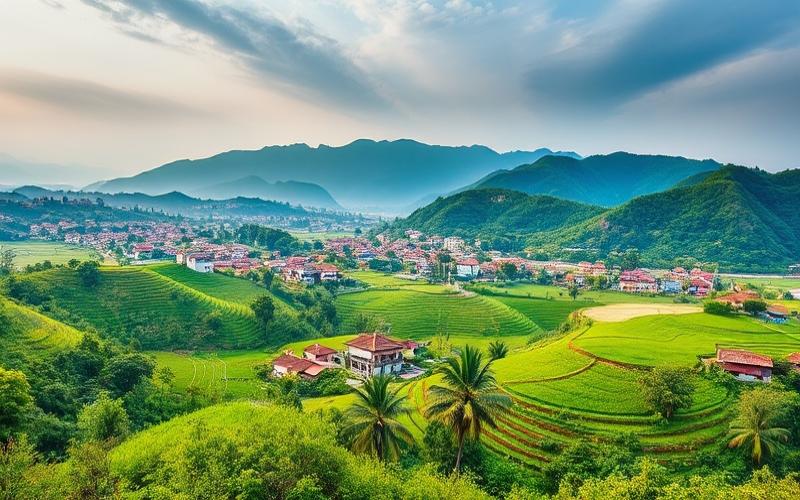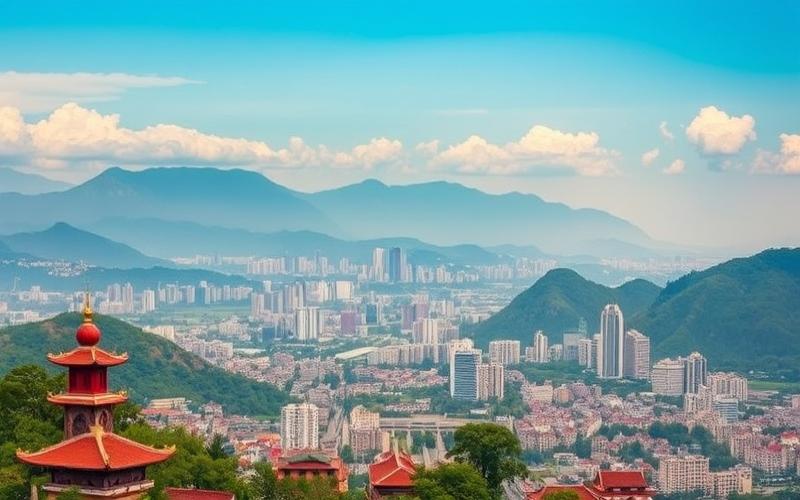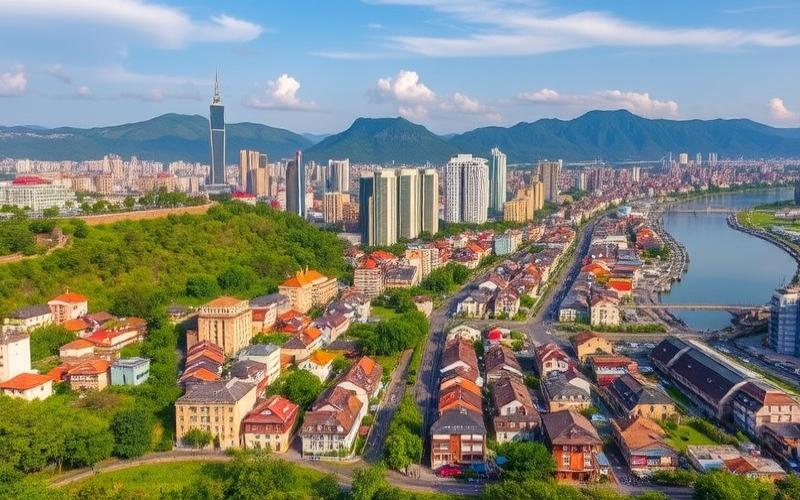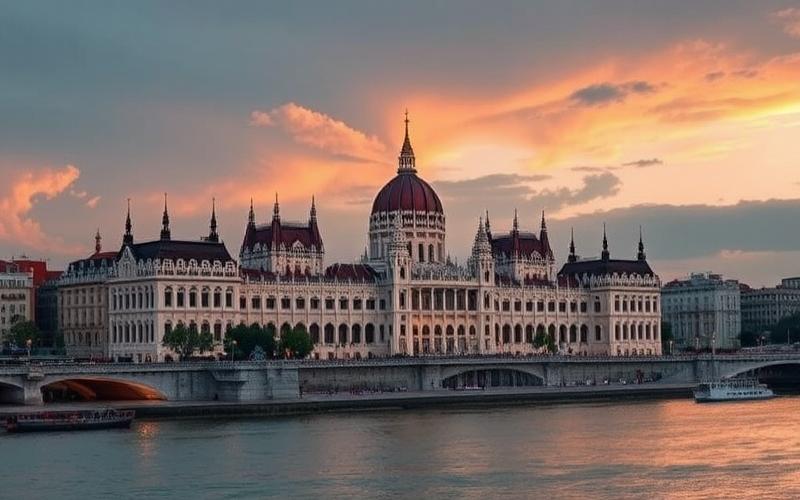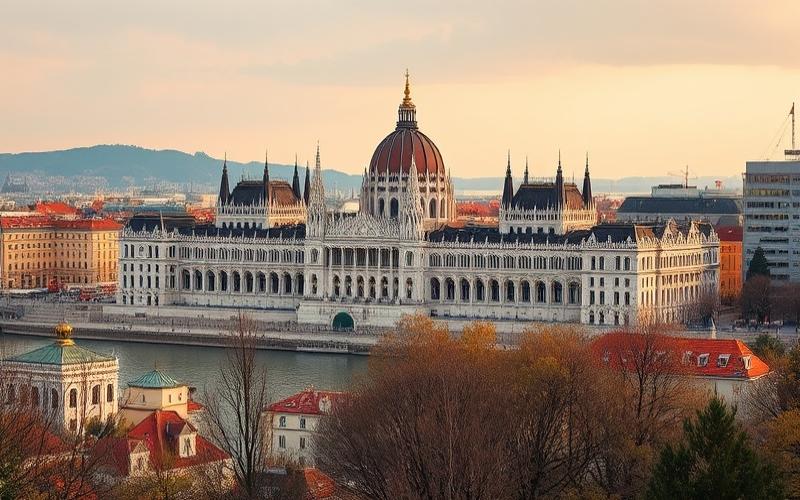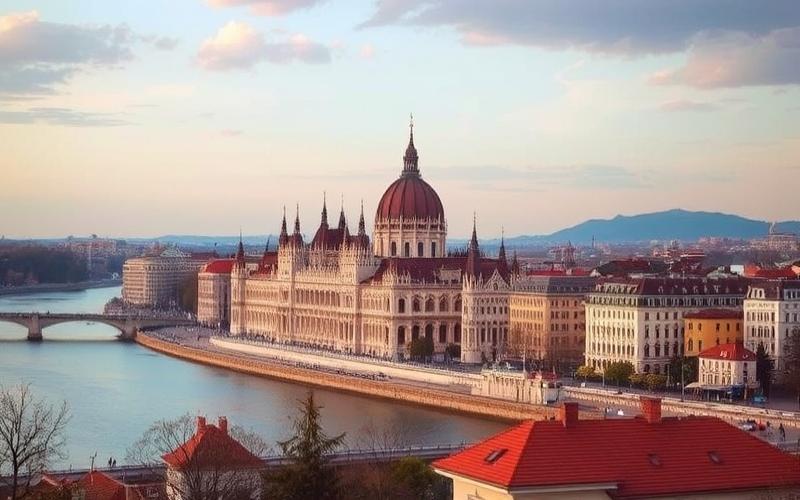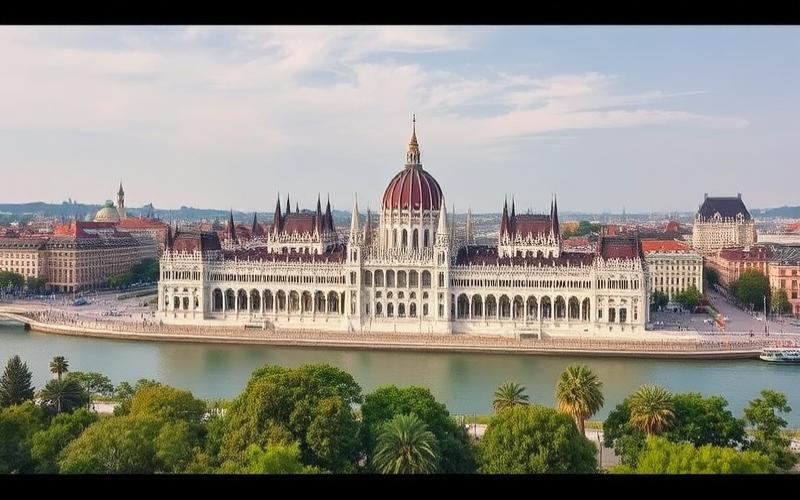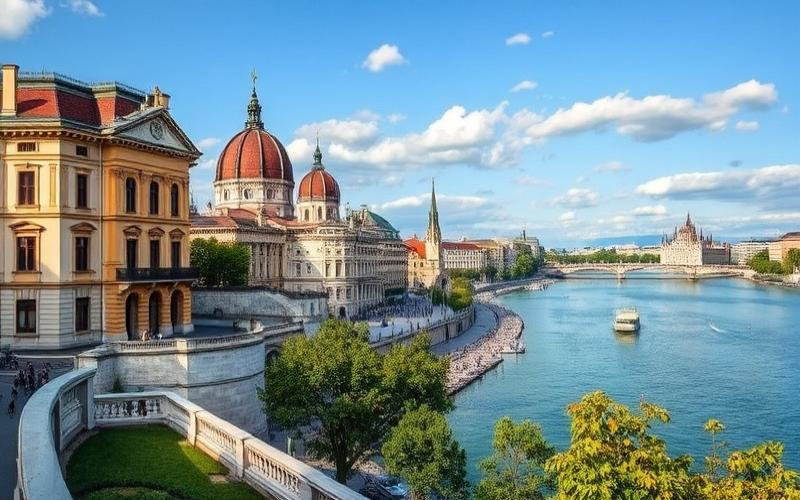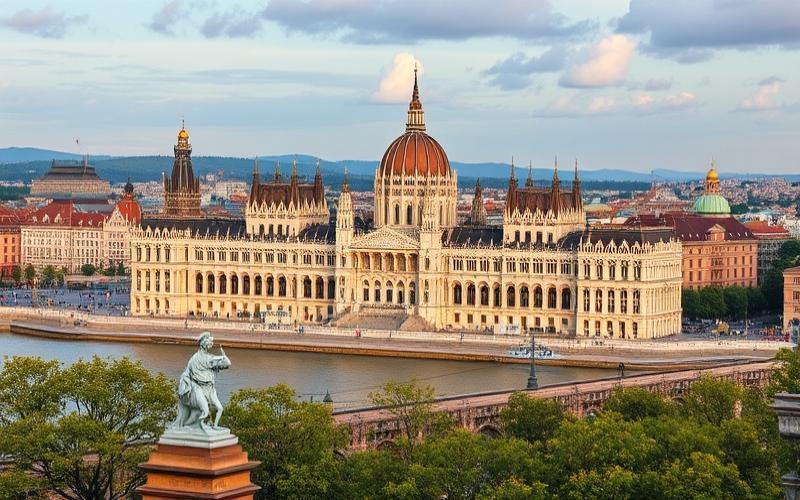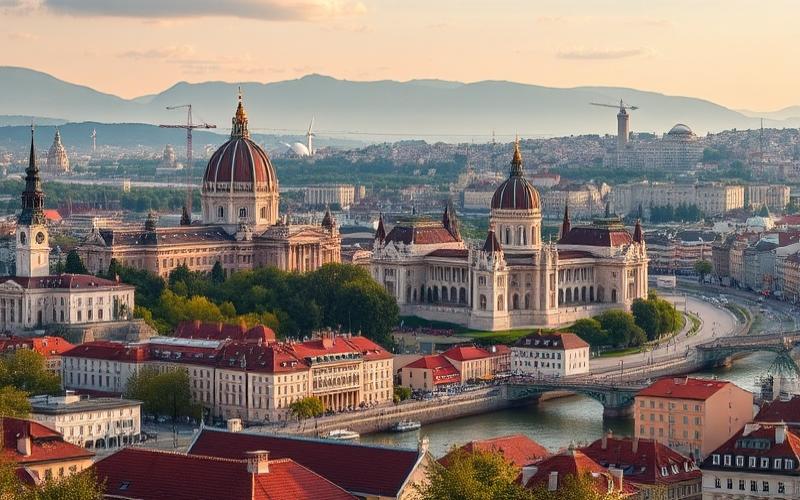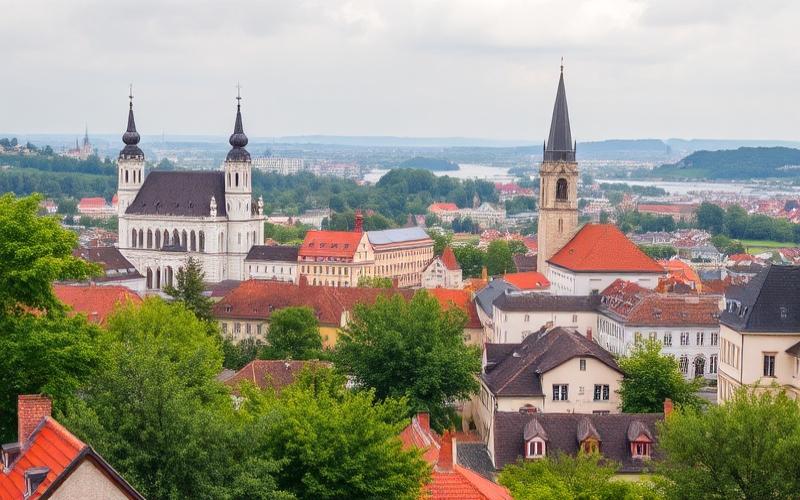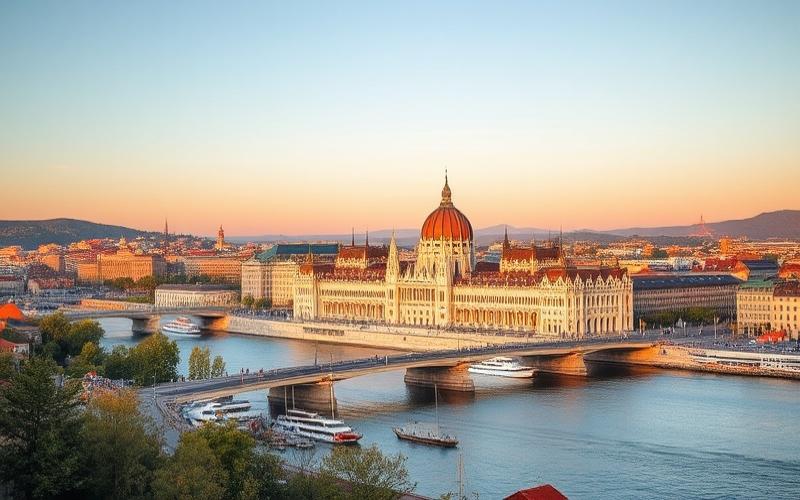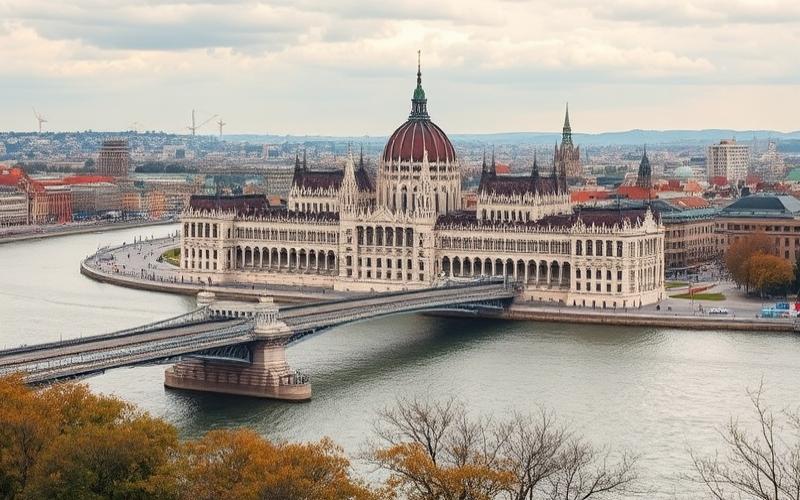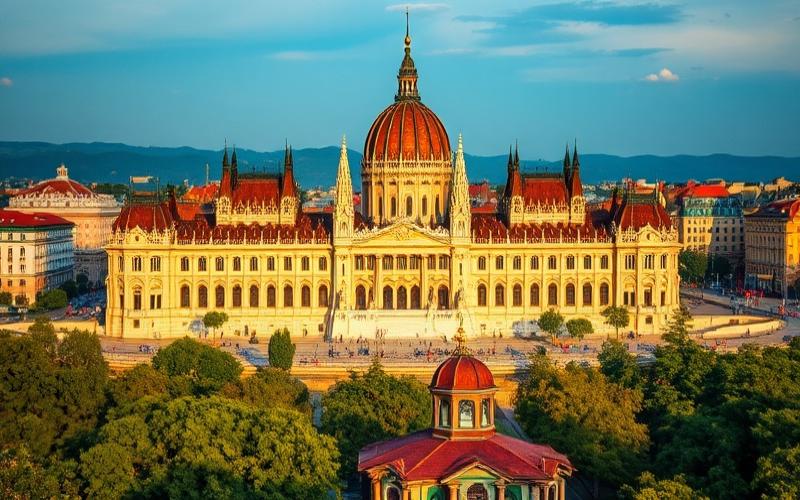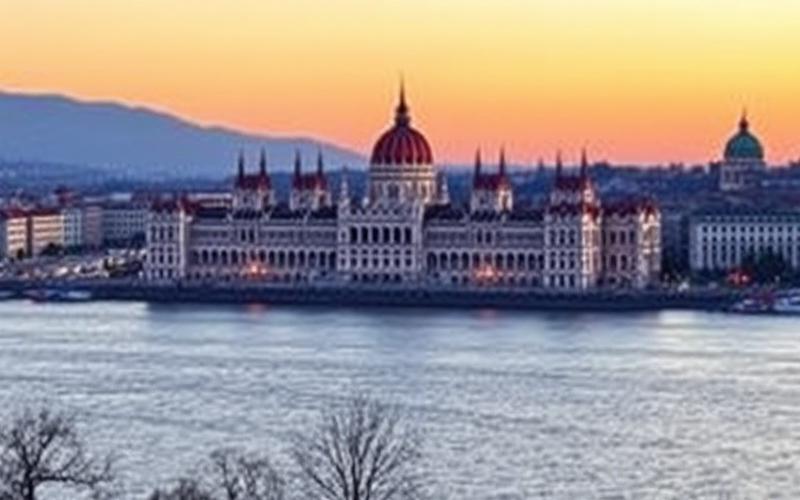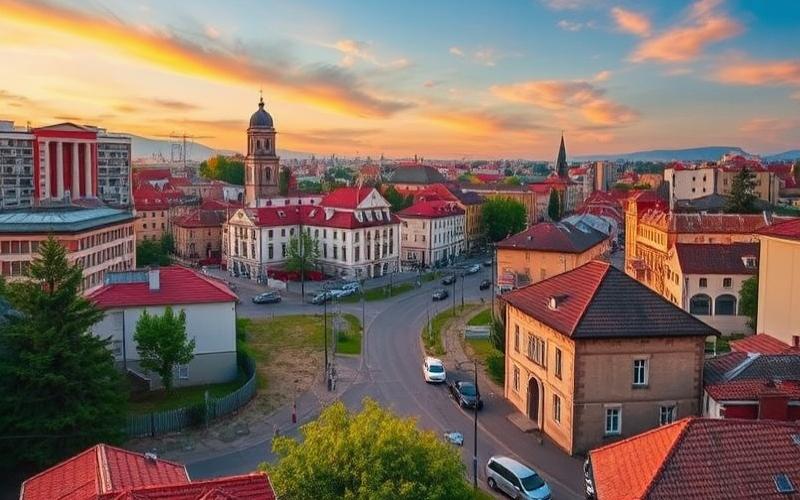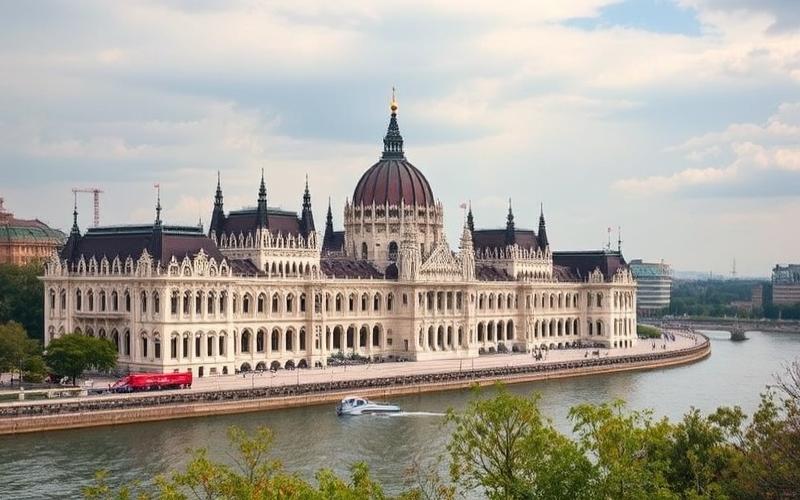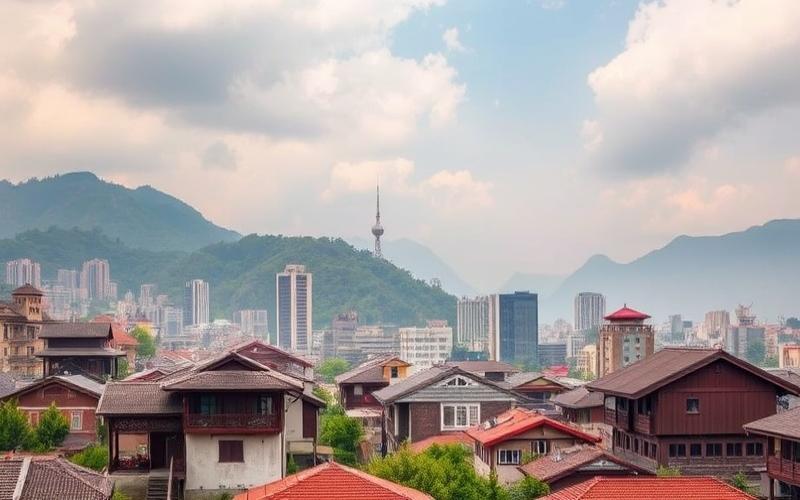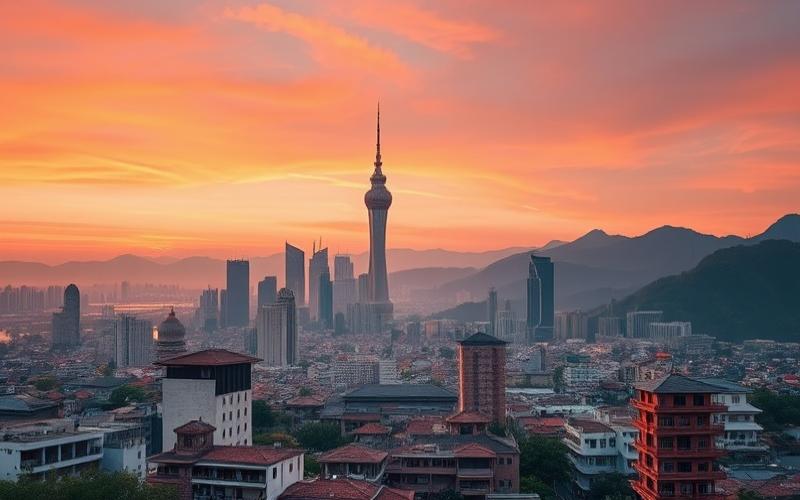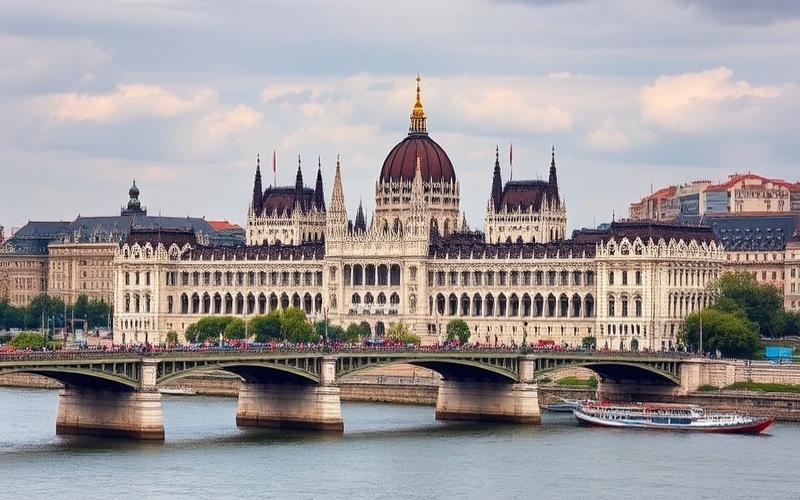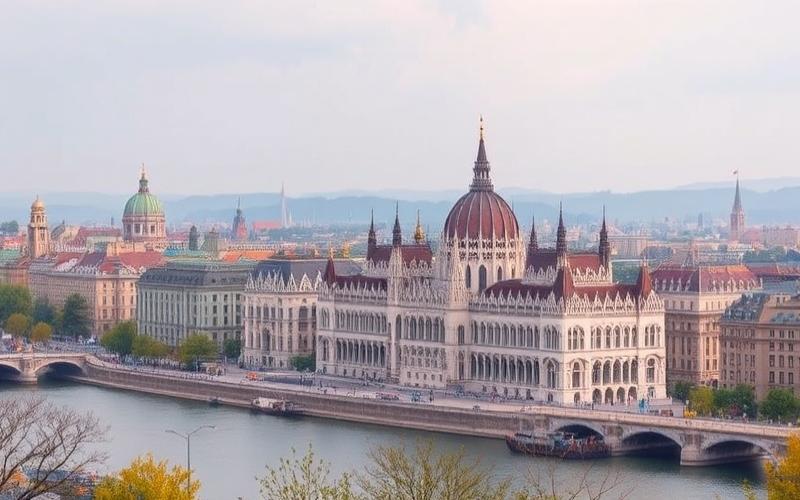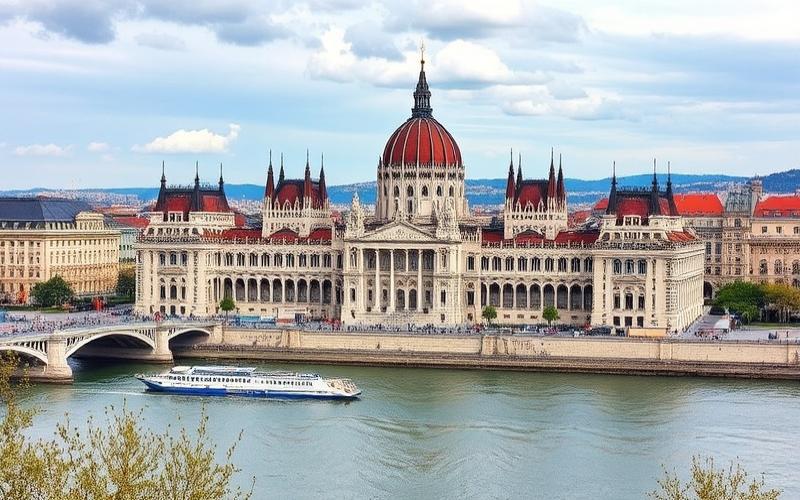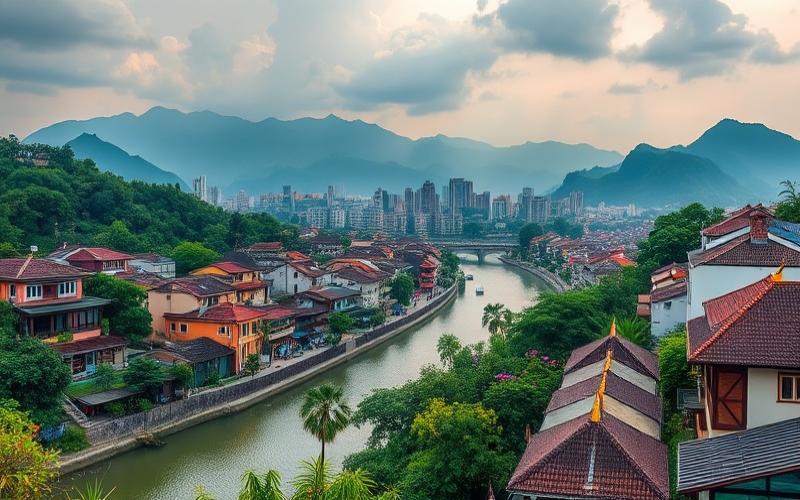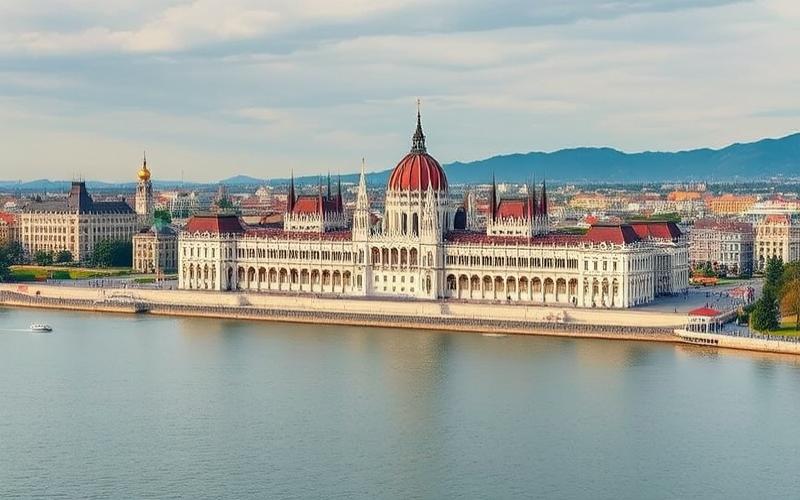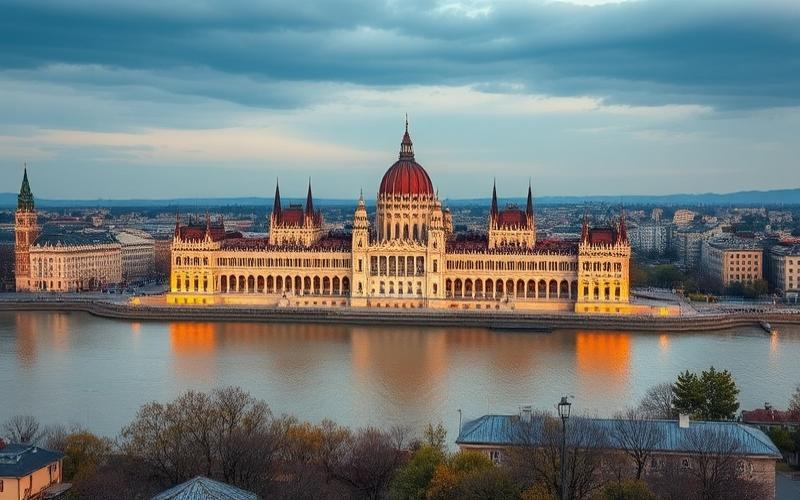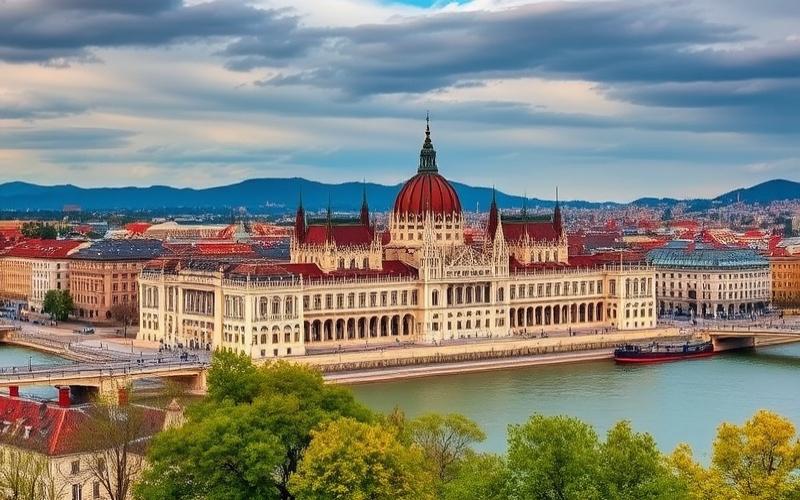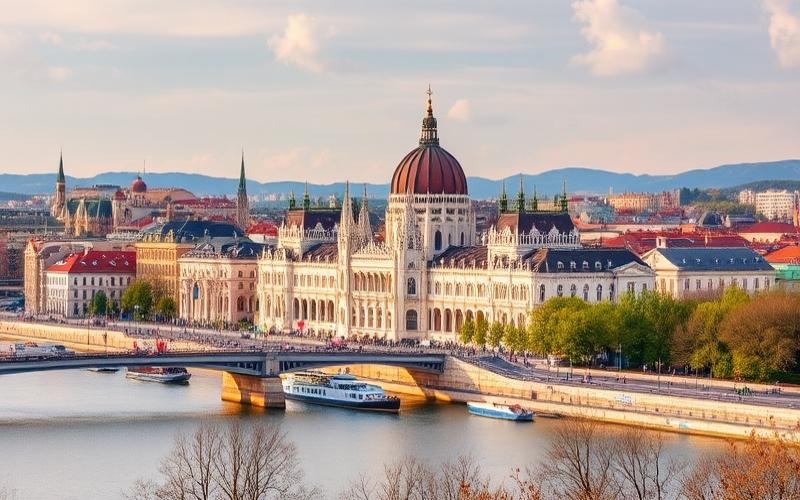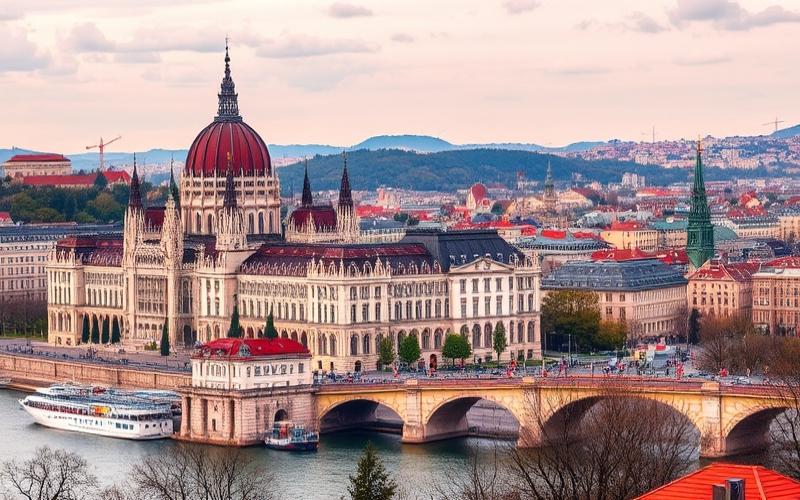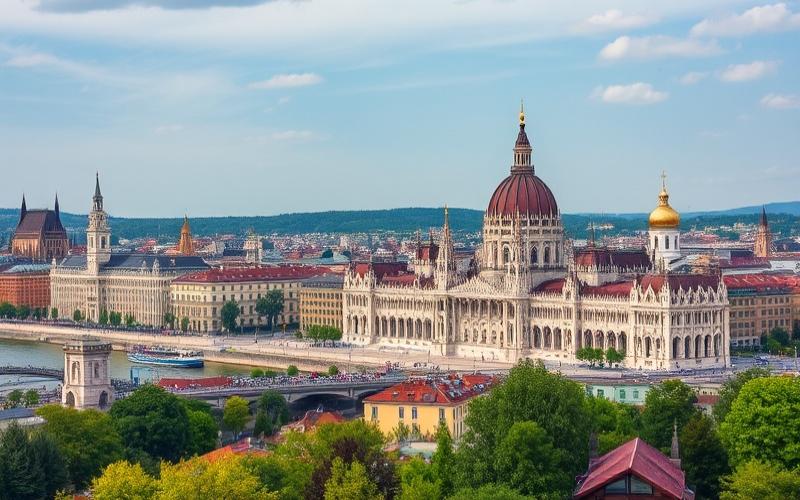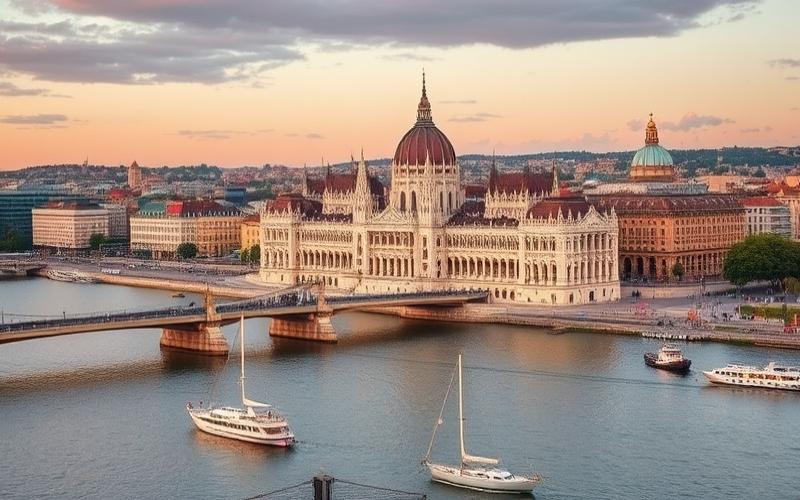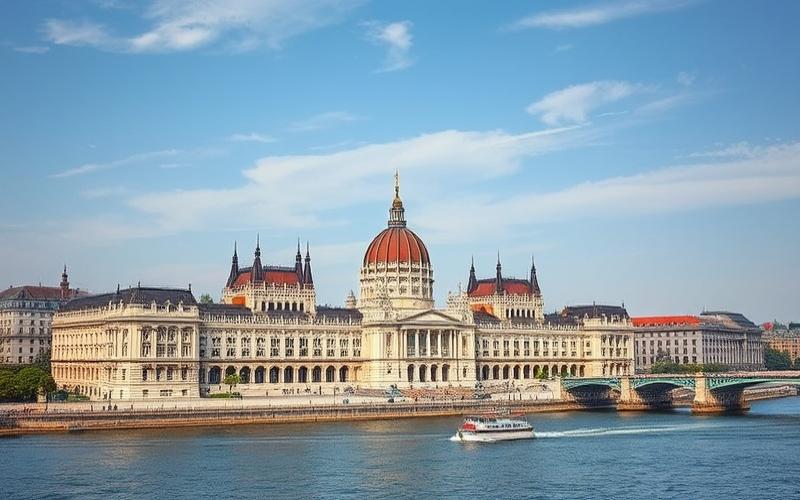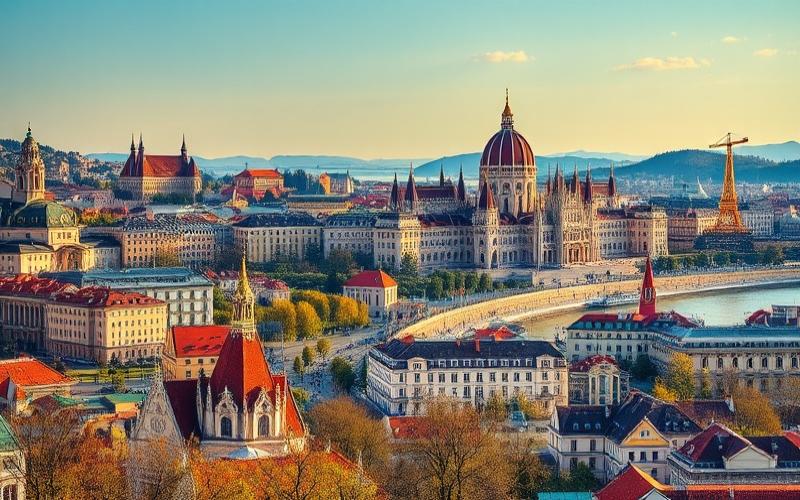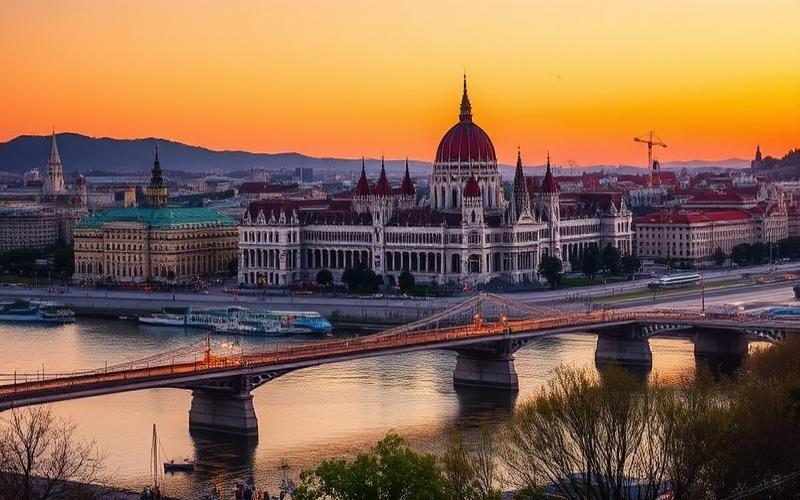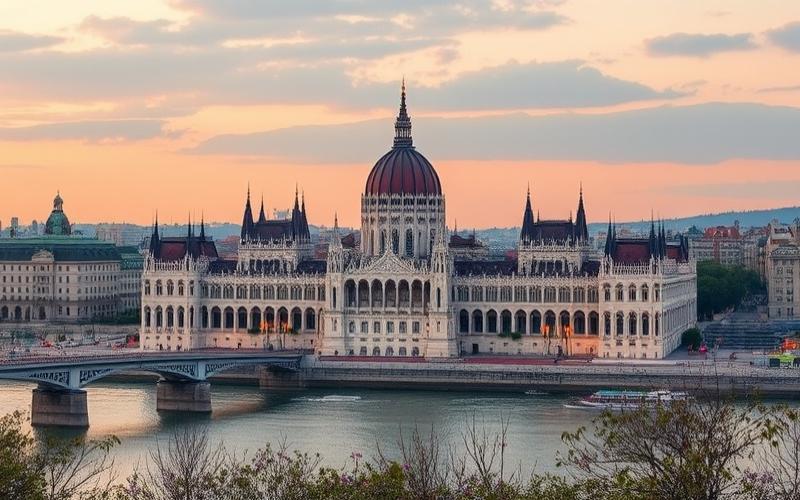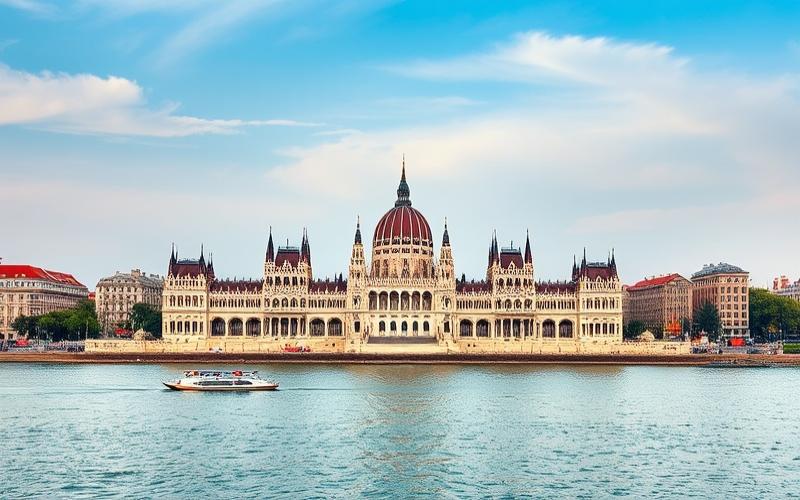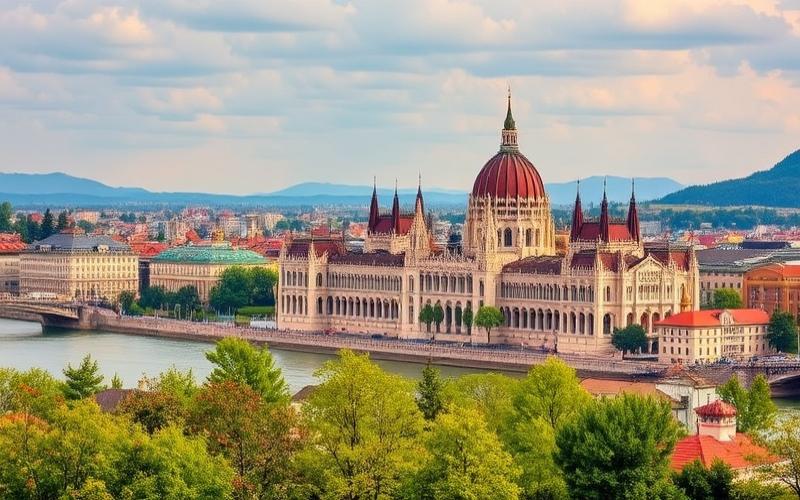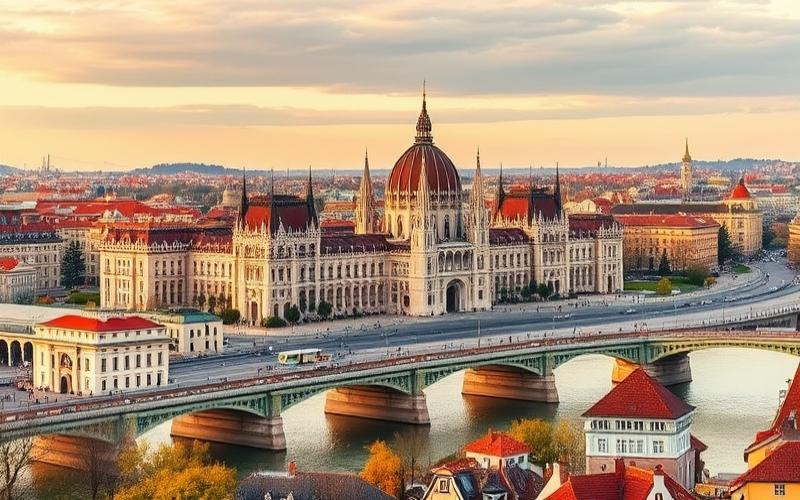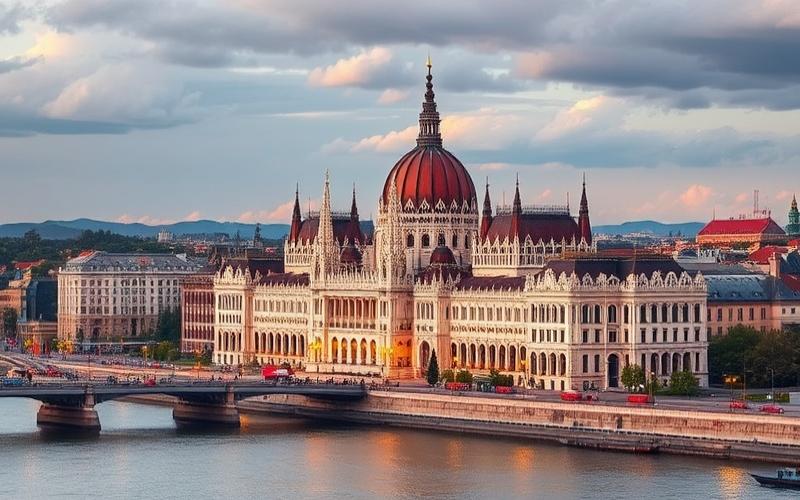
 Published on and written by Cyril Jarnias
Published on and written by Cyril Jarnias
Hungary, and particularly its capital Budapest, is undergoing significant urban transformation. Numerous ambitious development projects are underway or planned for the coming years, promising to radically reshape the country’s real estate landscape. These initiatives aim to modernize infrastructure, create new living and working spaces, while preserving Hungary’s rich architectural heritage. Let’s explore together the flagship projects that will shape tomorrow’s Hungary and the opportunities they offer to savvy investors.
Monumental Projects Reshaping the Urban Skyline
Hungary, and particularly Budapest, is poised for a true urban revolution with several large-scale projects currently in development. These ambitious initiatives aim to modernize infrastructure, create new living and working spaces, while preserving the country’s rich architectural heritage.
The Rákosrendező Project: A New Sustainable District in the Heart of Budapest
One of the most iconic projects is undoubtedly the development of the Rákosrendező area, located in Budapest’s 14th district. This vast 85-hectare site, recently acquired by the municipality for 126 million euros, will be transformed into a modern, eco-friendly neighborhood.
Unlike initial plans that envisioned skyscrapers reaching up to 500 meters in height, the new vision for Rákosrendező is moving toward a “Park City” concept. This ambitious project plans to create a 30 to 40-hectare public park at the heart of the area, enhanced by an artificial lake fed by the Rákos stream. Around this central green space, office and residential buildings will be developed, offering a pleasant and sustainable living environment.
An Intermodal Hub for Optimized Mobility
Accessibility is central to urban planners’ concerns. An intermodal hub is planned to effectively connect the new district to the rest of the city. This transport hub will link railway, metro, and tram networks, facilitating the movement of future residents and workers. A metro extension is also being considered, along with a connection to tram line 3 via the Szegedi Street bridge.
Affordable Housing for the Middle Class
Unlike some luxury real estate projects, Rákosrendező aims to be accessible to the Hungarian middle class. Plans include the construction of 8,000 to 10,000 housing units, accommodating between 25,000 and 30,000 people. These apartments will not be luxury properties but affordable homes designed to meet the needs of the local population.
Other Major Projects Across the Country
Beyond Budapest, other Hungarian cities are also experiencing significant urban development. For example, the Mini-Skanzen “HARICA” project in Kondó and the reconstruction of the Mályinka observation tower illustrate the commitment to developing tourism and infrastructure in rural regions.
These projects demonstrate Hungary’s ambition to modernize its urban infrastructure while preserving its cultural and natural heritage. They offer a fascinating glimpse of what tomorrow’s Hungary could be: a country harmoniously blending tradition and modernity, urban development and environmental preservation.
Good to Know:
The Rákosrendező project in Budapest perfectly illustrates the new approach to urban development in Hungary, prioritizing sustainability, social diversity, and harmonious integration into the existing urban fabric.
A Profound Impact on the Hungarian Real Estate Market
These urban development projects will undoubtedly have a significant impact on the Hungarian real estate market, both in the short and long term. Let’s analyze the main expected consequences of these urban transformations.
Stimulation of Real Estate Demand
The creation of attractive, well-connected new neighborhoods, like Rákosrendező in Budapest, should stimulate real estate demand in these areas. Modern homes located in pleasant environments with quality infrastructure will likely attract many potential buyers and tenants.
Evolution of Real Estate Prices
Improved quality of life in certain neighborhoods could lead to rising real estate prices in these areas. However, the increased housing supply, particularly with the construction of thousands of affordable apartments in Rákosrendező, could help stabilize prices across the overall market.
Market Diversification
These urban development projects will diversify Hungary’s real estate offerings. New homes built to modern standards will coexist with renovated historic buildings, providing a wide range of choices for buyers and investors.
Increased Attractiveness for Foreign Investors
The modernization of urban infrastructure and the creation of attractive new living and working spaces should enhance Hungary’s appeal to foreign investors. The country already maintains a high stock of foreign direct investment (FDI) per capita compared to Central and Eastern European standards.
Development of the Rental Market
The influx of new residents and workers into developing areas should stimulate the rental market. Investors could benefit from attractive rental yields, particularly in new, well-connected urban zones.
Renovation of Existing Real Estate Stock
Facing competition from new projects, we can expect an acceleration in the renovation of existing real estate. This could create opportunities for investors willing to acquire and renovate older properties in promising neighborhoods.
These developments in the Hungarian real estate market offer numerous opportunities but also require thorough analysis and a good understanding of local dynamics for investors looking to position themselves in this rapidly transforming market.
Good to Know:
The Hungarian real estate market is expected to experience significant diversification and revitalization thanks to ongoing urban development projects, offering new opportunities for both local residents and foreign investors.
The New Real Estate Investor’s El Dorado?
Urban development projects in Hungary are opening new perspectives for real estate investors, whether local or foreign. Here’s an overview of the most promising opportunities and strategies to consider to benefit from this urban transformation.
Invest in Developing Areas
Neighborhoods undergoing transformation, like Rákosrendező in Budapest, offer interesting investment opportunities. Acquiring real estate in these areas before their full development could yield significant medium to long-term capital gains.
Focus on Affordable Residential Real Estate
The construction of affordable housing for the middle class, as planned in the Rákosrendező project, addresses growing demand in Hungary. Investing in this type of property could offer a good balance between rental yield and capital appreciation potential.
Exploit the Potential of Secondary Cities
Although Budapest attracts attention, Hungarian secondary cities also offer interesting opportunities. Projects like the Mini-Skanzen “HARICA” in Kondó or the reconstruction of the Mályinka observation tower demonstrate tourism and infrastructure development in these regions.
Take Advantage of Still Attractive Prices
Despite steady annual price growth of 5-8%, the Hungarian real estate market remains relatively affordable compared to other European countries. In Budapest, prices per square meter range between 2000 and 5000 euros in sought-after areas, while in coastal cities like Varna or Burgas, they can drop to 1200 euros for new or renovated apartments.
Invest in Renovation
For investors willing to undertake renovation work, purchasing older properties to renovate can prove particularly profitable. It’s possible to find properties for less than 700 euros per square meter in some regions, offering significant capital appreciation potential after renovation.
Leverage Rental Demand
Rental investment in Hungary can be particularly profitable, thanks to the combination of attractive purchase prices and sustained rental demand, especially in new, well-connected urban areas.
Diversify Your Portfolio
The diversity of urban development projects in Hungary allows investors to diversify their real estate portfolios. It’s possible to combine investments in new housing, properties for renovation, commercial properties, or even tourism projects in rural regions.
Benefit from Government Incentives
Hungary offers various incentives to foreign investors, particularly within strategic development projects. It’s important to research assistance programs and potential tax benefits related to certain types of real estate investments.
Although these opportunities are promising, it’s crucial for investors to thoroughly research the specifics of the Hungarian market, local regulations, and long-term trends before getting started. Thorough due diligence and, if possible, consulting with local experts are recommended to maximize the success chances of any real estate investment in Hungary.
Good to Know:
Hungary offers a range of real estate investment opportunities, from large-scale urban development projects to properties for renovation in growing areas, all at prices still competitive compared to other European markets.
In conclusion, Hungary, and particularly Budapest, is establishing itself as an increasingly attractive destination for real estate investors. Ambitious urban development projects, such as Rákosrendező, promise to transform the urban landscape while creating new investment opportunities. The combination of still affordable prices, stable market growth, and sustained rental demand makes Hungary a market to watch closely in the coming years.
However, as with any foreign real estate investment, it’s essential to adopt a cautious and well-informed approach. Potential investors must consider not only the obvious opportunities but also the potential challenges associated with investing in a foreign market, such as language barriers, cultural differences, and local legal and tax specifics.
The key to success lies in a thorough understanding of the local market, a well-defined investment strategy, and ideally, support from experienced professionals on the ground. With these precautions, urban development projects in Hungary could well offer lucrative opportunities for savvy investors, while contributing to the country’s sustainable development and modernization.
Disclaimer: The information provided on this website is for informational purposes only and does not constitute financial, legal, or professional advice. We encourage you to consult qualified experts before making any investment, real estate, or expatriation decisions. Although we strive to maintain up-to-date and accurate information, we do not guarantee the completeness, accuracy, or timeliness of the proposed content. As investment and expatriation involve risks, we disclaim any liability for potential losses or damages arising from the use of this site. Your use of this site confirms your acceptance of these terms and your understanding of the associated risks.

